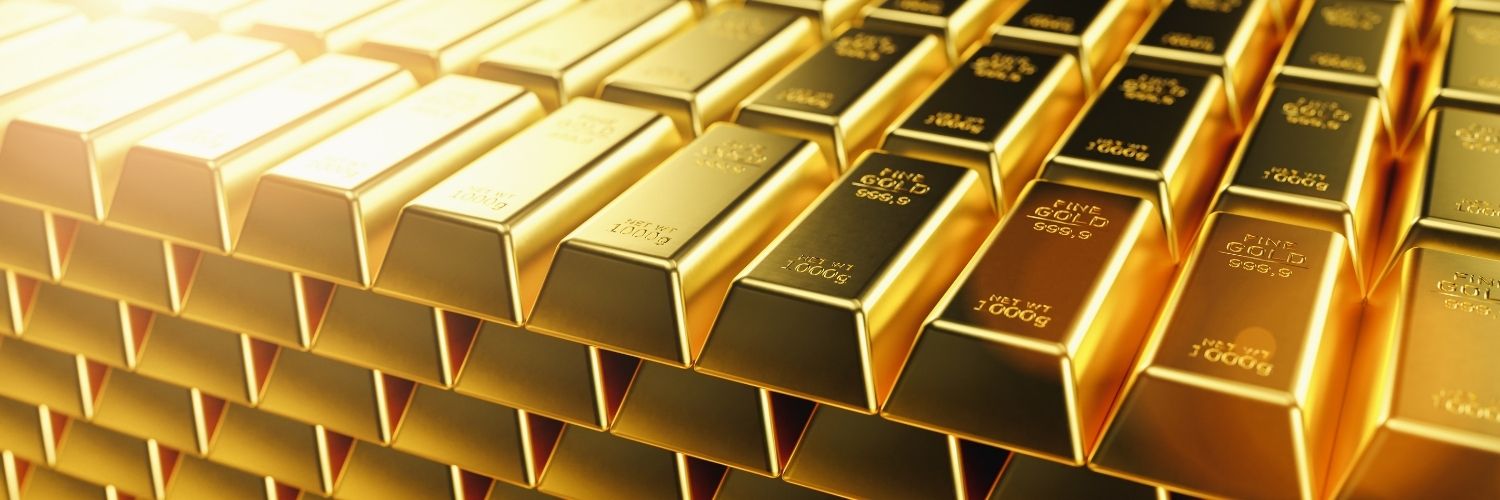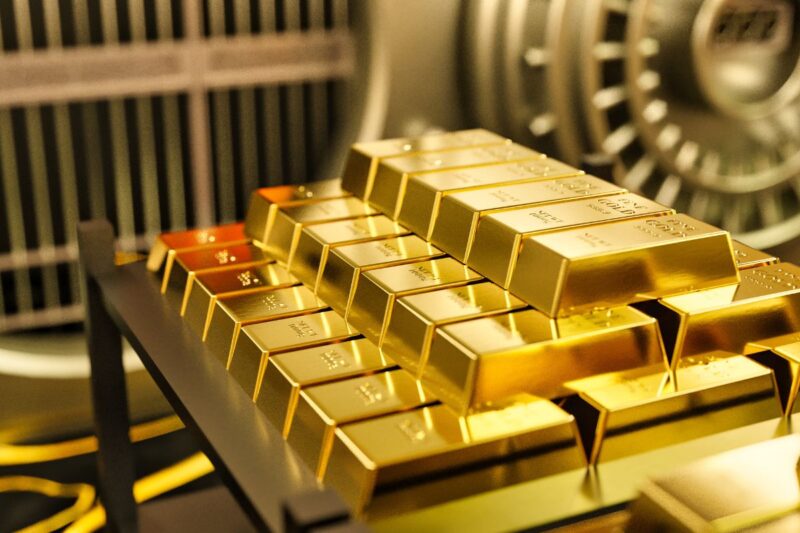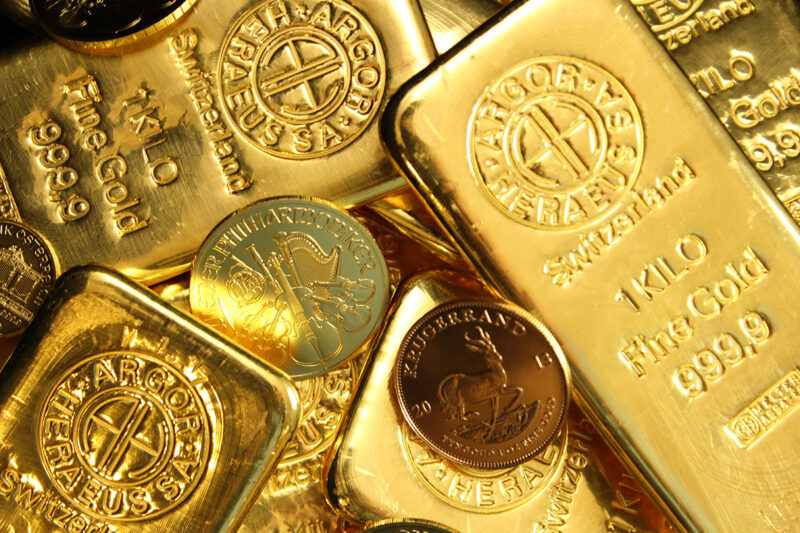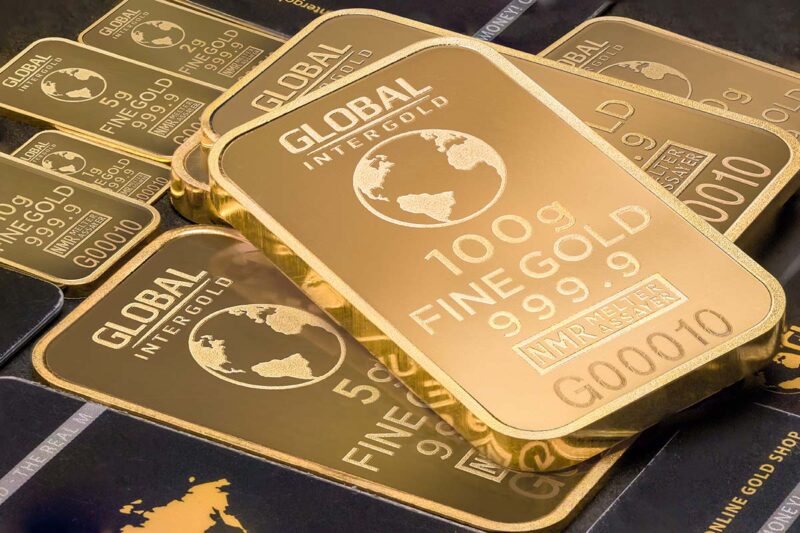

Why doesn’t China disclose all its gold reserves?
China is the world’s largest gold producer and has been buying huge quantities of the precious metal for years, yet official figures for its gold reserves remain absurdly low. What is the true amount of its gold reserves? And why so much secrecy?
As the world’s second-largest economy, the People’s Republic of China has enormous foreign exchange reserves. Currently, it is the country with the world’s largest gold and cash reserves – if we add the two variables together – but the real figure of its gold reserves is a mystery that worries other global players.
Unlike many central banks that report their gold purchases to the IMF every quarter, central banks in China, Russia and other countries buy and store gold without declaring it as reserves. This would explain why China has, at least according to World Gold Council (WGC) data, such low gold reserves relative to total foreign exchange reserves.
For example, China’s foreign exchange reserves amount to $3.20 trillion, the highest of all countries, and the WGC estimates that it has 2,113.46 tonnes of gold in reserves, 3% of its total reserves. If we compare this with the United States, which accumulates 60% of its reserves in gold – more than 8,000 tonnes – or with the average for other countries, which is equivalent to 40% and 50% of their reserves, we can see that China’s estimate of accumulated gold is far below the amount that would be expected.
The distinction between monetary gold and non-monetary gold
China itself has admitted more than once that the actual figures for its gold reserves are far above the data published by WGC, yet it has remained silent since 2019. Some analysts believe that the Asian giant could have more than twice the gold reserves of the United States, while most are confident that it holds at least twice the amount of gold officially declared.
But in order to get a credible estimate of the actual total volume of the Chinese gold reserves, we first need to distinguish clearly between monetary gold (owned by a central bank) and non-monetary gold (owned by the private sector). This is important to know because China only makes public imports of non-monetary gold.
Whether imported, mined or recycled, it is estimated that the Chinese private sector has accumulated up to 23,000 tonnes of gold, which, when added to state gold, could bring the total amount of gold in China to more than 30,000 tonnes. An amount that seems easily feasible considering that China has been a net importer of gold since the 1990s, despite the fact that it produces 15% of the world’s gold, which therefore stays in the domestic market.
The weaponisation of the dollar and the global financial system
The control that the United States exercises over the International Monetary Fund (IMF) and the World Bank (WB), as well as its power to decide which banks have access to SWIFT (Society for Worldwide Interbank Financial Telecommunication), together with the hegemony of the dollar as the world’s reserve currency, gives it a capacity for negotiation, intimidation and punishment that is often used for its own economic interests and at the expense of the interests of other countries.
This fact has been further evidenced by the economic sanctions against Russia in the wake of the war in Ukraine and the subsequent misappropriation of half of its foreign exchange and gold reserves abroad in an attempt to undermine the country’s financial stability. This, however, is nothing new for a China that has been the target of Western sanctions for decades and which, in addition, has to contend with an escalating US-instigated trade war, mirrored by its client states in Europe and Oceania.
In this context, Beijing sees Washington continuing to work to aggravate geopolitical tensions between China and Taiwan, raising the possibility of an indirect war with the US, similar to the one Russia is facing on the European continent. In any case, it is a scenario that reaffirms the position of both Russia and China in their attempt at de-dollarisation, encouraging the use of their currencies in bilateral trade and steadily increasing their gold holdings.
Given these developments, it is not surprising that China, like other countries, is opting for discretion when it comes to disclosing the real figure of its reserves. Similarly, it cannot be ruled out that this “furtive” accumulation of gold is related to the launch of a digital currency backed by the golden metal. A strategic manoeuvre that would destabilise the dollar and threaten its hegemony, while at the same time boosting confidence in the BRICS political and economic partnership.
If you want to discover the best option to protect your savings, enter Preciosos 11Onze. We will help you buy at the best price the safe-haven asset par excellence: physical gold.
Leave a Reply
You must be logged in to post a comment.





Es una opció molt bona en aquests moments diversificar els estalvis en or. Tothom opina que hi haurà una revalorització important en els propers anys. Moltes gràcies pel fil
Tal qual, Lluís, és així mateix… Moltes gràcies pel teu comentari!!!
Em semble un article molt interessant. Però, realment es segura la compra d’or?
Gràcies, Anna. Es considera una compra segura perquè, històricament, és un metall preciós que ha mantingut o augmentat el seu valor, especialment enfront de crisis econòmiques. Per això es considera un valor refugi. Ara bé, això no vol dir que puntualment i a curt termini no pugui baixar de preu, que també passa.
Interesant
Celebrem que l’hi hagis trobat, Alícia!!!
Interesant article
Celebrem que t’hagi agradat i que ho hagis trobat interessant, Manel!!!
gràcies
Gràcies a tu, Joan!!!